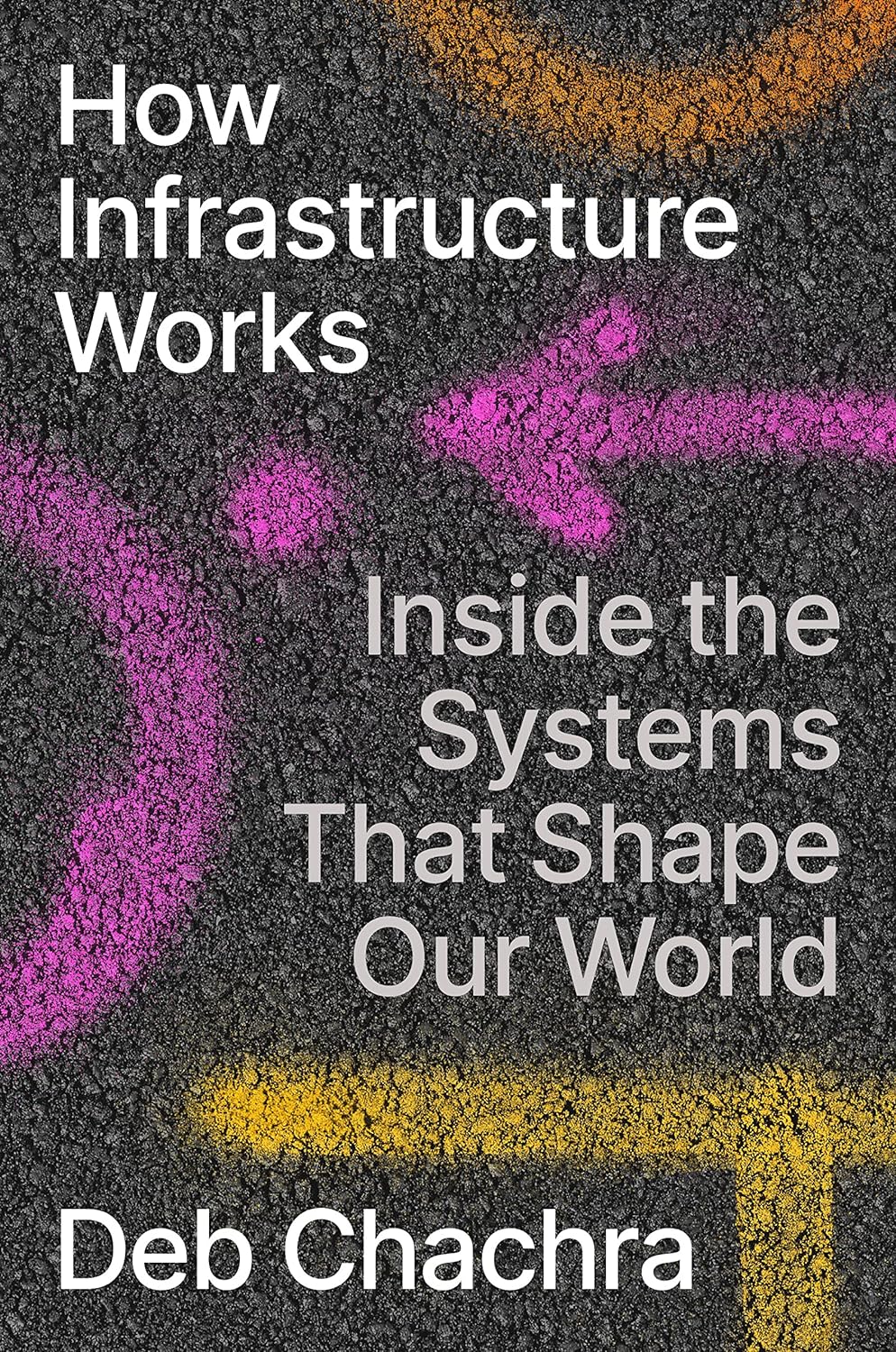Fionnáin reviewed How Infrastructure Works by Deb Chachra
A critical reflection on infrastructure
4 stars
Deb Chachra's How Infrastructure Works considers infrastructure like water, electricity and internet from many angles, taking a critical feminist approach to services often rendered invisible to us unless they stop working. Beginning from a perspective of infrastructure as a social good and a care role, Chachra introduces an interesting angle that draws from her work as an engineer and her upbringing in Canada as the daughter of Indian immigrants.
Entangled within this are anecdotes about how infrastructures were built, and how they are often socially maintained. The perspective reads almost like social philosophy that takes a well considered perspective pushing against accepted political norms, and it is great for this. The conclusion and some of the chapters drag out a little in the writing, but that doesn't take much from the magnificent argumentation.



